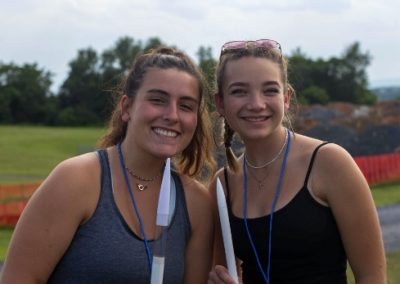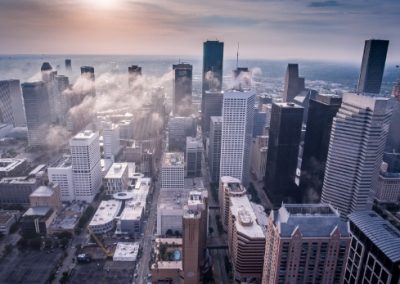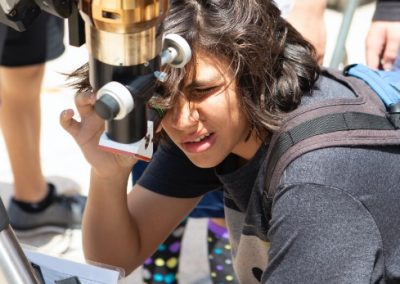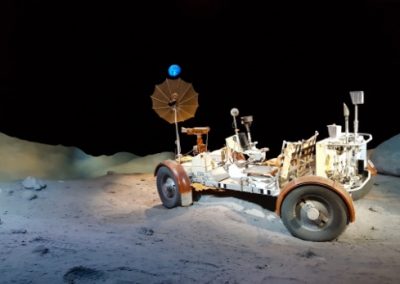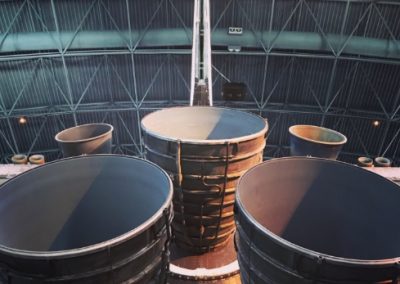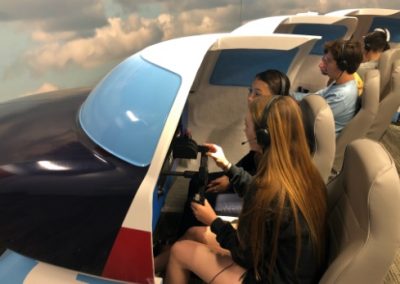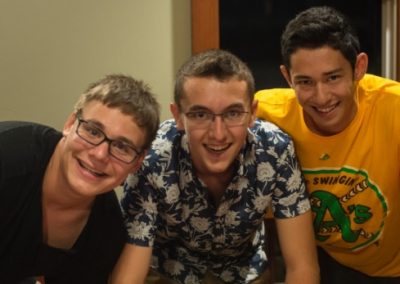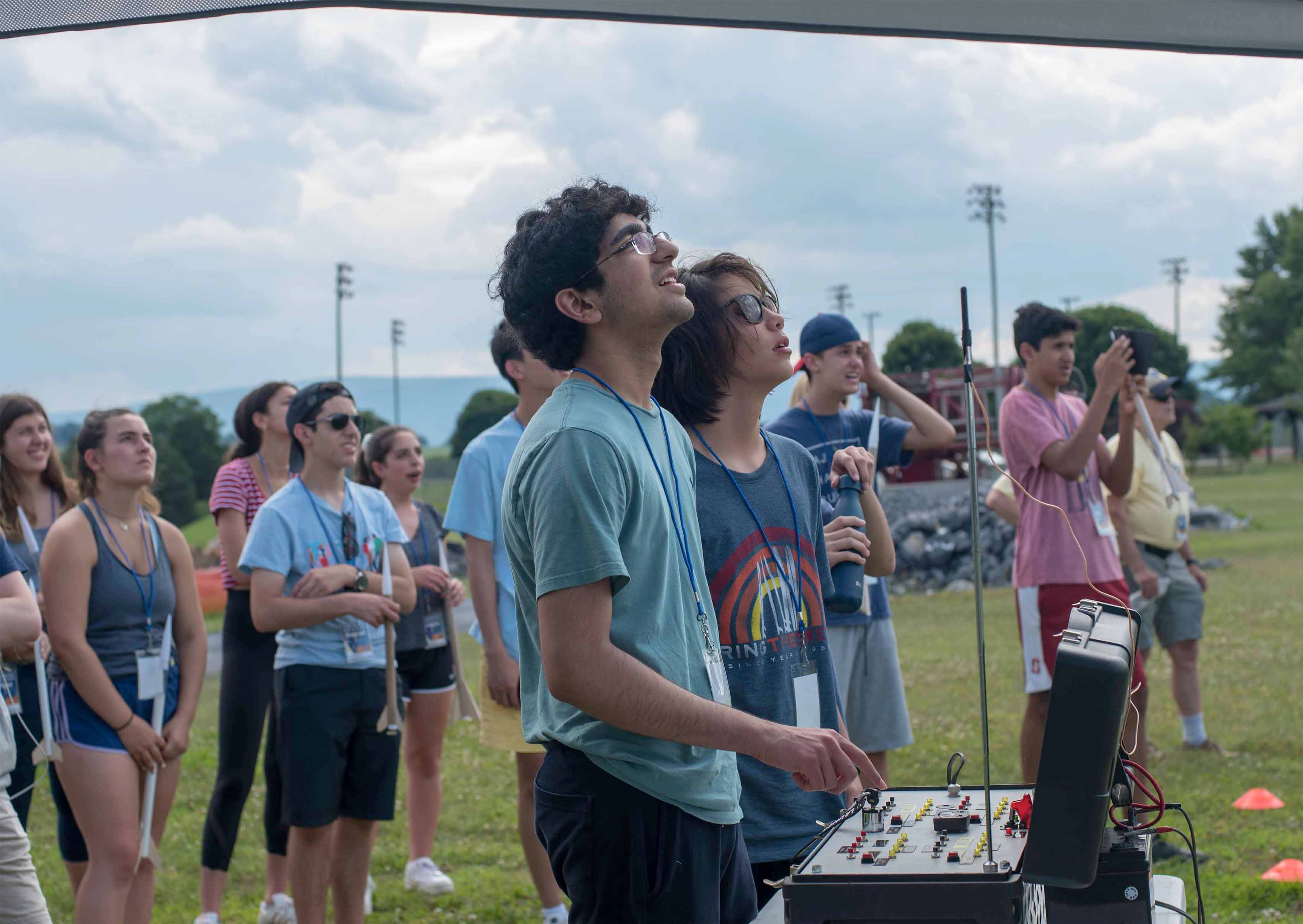Smithsonian Student Travel | Washington, D.C. & Houston
Limited Spaces Remain!
Highlights
- Learn about aerodynamics, then build and launch your own rocket
- See historic aircraft at the Smithsonian’s Steven F. Udvar-Hazy Center
- Use a telescope to stargaze with a NASA Solar System Ambassador
- Go behind the scenes with NASA scientists at the Johnson Space Center
- Explore the city’s vibrant food scene and diverse restaurants
Itinerary
This itinerary represents our plan for the program. However, we may implement changes if we identify opportunities to improve the experience, to take advantage of unexpected events, or to accommodate local schedule changes.
Arrival • Travel Day • Meet your student travel group and your trip leaders in Washington, D.C., where your journey begins
Washington, D.C. • 5 days • During your time in the nation’s capital, meet with industry pioneers, interview local experts, and deepen your understanding about what motivates humans to venture into outer space. Learn about the history of flight and the evolution from airplanes to spacecraft at the Smithsonian National Air and Space Museum, located right on the National Mall. Visit the Steven F. Udvar-Hazy Center, and see groundbreaking aircraft up close including the Enola Gay, the SR-71 Blackbird, and the space shuttle Discovery. Examine the past, present, and future of space exploration in discussions with government officials and historians. Visit monuments in Washington, D.C., and explore the diverse foods and flavors of the city’s restaurant scene.
Shenandoah National Park • 2 days • Take a crash course on the basics of aerodynamics, build your own model rockets, and launch them from the valley floor on a road trip to Shenandoah National Park. Hike and explore Shenandoah’s unique ecology with a local guide, stargaze away from the city lights, and embark on a guided astronomical journey through the lens of a telescope with a NASA Solar System Ambassador.
Houston • 5 days • Fly to Houston and meet with scientists on the cutting edge of space exploration at NASA’s Johnson Space Center. Learn how Mission Control communicates with the International Space Station, speak with local experts and brainstorm what it would really take to colonize Mars, and taste-test food that astronauts take on missions. Have dinner with an astronaut, enjoy lunch with an engineer, and hear about experiences in zero-gravity orbit and reflections gained from orbiting the Earth. Next, go behind the scenes to visit NASA’s high-tech training facilities. Take a lesson on the physics of flight and aircraft design and maintenance, then try your hand at drawing up a flight plan. See if you have what it takes to pilot an aircraft during a flight simulation at the Lone Star Flight Museum, then try a thrilling ride of a different kind as you test the limits of modern engineering and experience near-zero-gravity at the Kemah Boardwalk. Enjoy freshly caught Gulf seafood and cool off by Galveston Bay.
As the program concludes, wrap up your independent project to share with your group and celebrate your time together.
Return • Travel Day • Fly from Houston to your final destination.
Smithsonian Student Travel Experts
A Smithsonian Student Travel Expert will join the group for four or five days of the itinerary. A professional in their field, they will tie in their knowledge and experiences with the themes of the program and share their insights and passion for the region during talks and informal conversations throughout their time with the students. Meet next summer’s expert below.
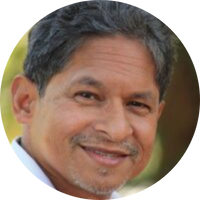
Raja GuhaThakurta, Professor of Astronomy & Astrophysics
What to Expect
Physical Activity • This is a physically active summer travel program. You can expect to do plenty of walking around cities and museums, and may also kayak and swim. You do not need to be at peak fitness to participate, but it is important that you have a desire to be physically active, and that you are excited about trying all activities.
Accommodations • Accommodations at each of our stops are comfortable hotels. Leaders reside with students throughout the program.
Climate • Summers in Washington, D.C., are warm and humid with daytime temperatures ranging from 85–95°F (30–35°C) and cooling off at night. Houston is similarly warm and humid.
Meals • We enjoy meals at local restaurants and cafes, and sometimes take picnic lunches to local parks.
Enroll in two programs & save $1,000!
$800 tuition discount + no second application fee

